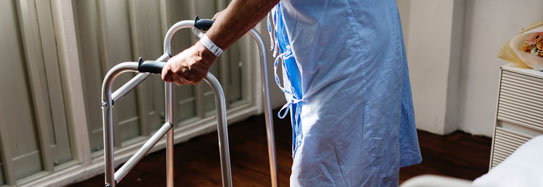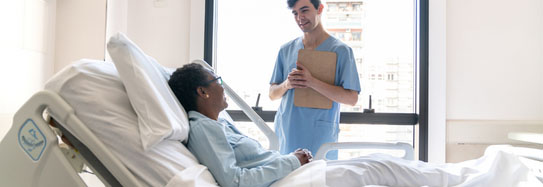Dementia is a condition that affects your brain. It causes memory loss, personality changes, and – as the condition progresses – your body’s ability to function physically. Someone with advanced dementia may forget how to eat or drink or may choke easily. This often results in malnutrition or infections like pneumonia. People with advanced dementia may be unable to move about independently, staying in bed or in a wheelchair for extended periods. Poor nutrition and staying in one place for extended periods can cause skin breakdown or pressure sores (also called bed sores).
As people age, their immune system also becomes less effective in fighting infections. They may develop illnesses like diabetes or take medications that affect how their immune system works. Nutritional status is also important. Malnutrition, not consuming enough nutrients for your needs, can lower your body’s ability to fight infection.
These issues all result in an increased risk of contracting an infection. But people with advanced dementia also have the additional problem of not being able to tell you there is something wrong if they do have an infection. For example, someone with dementia who has a urinary tract infection (UTI) may not tell you that they have pain when urinating. If the person is incontinent (urinates in a brief, has “accidents”, or has a urinary catheter), you may not notice if they are urinating more frequently. The first sign of anything being wrong may be an extreme change in personality or sudden worsening of dementia. Urinary tract infections are one of the most common causes of sepsis, along with pneumonia.
Sepsis, which was often called blood poisoning, is the body’s life-threatening response to infection. Like strokes or heart attacks, sepsis is a medical emergency that requires rapid diagnosis and treatment.
Suggested Citation:
Sepsis Alliance. Sepsis and Dementia. 2023. https://www.sepsis.org/sepsisand/dementia/
Updated December 15, 2023.








































